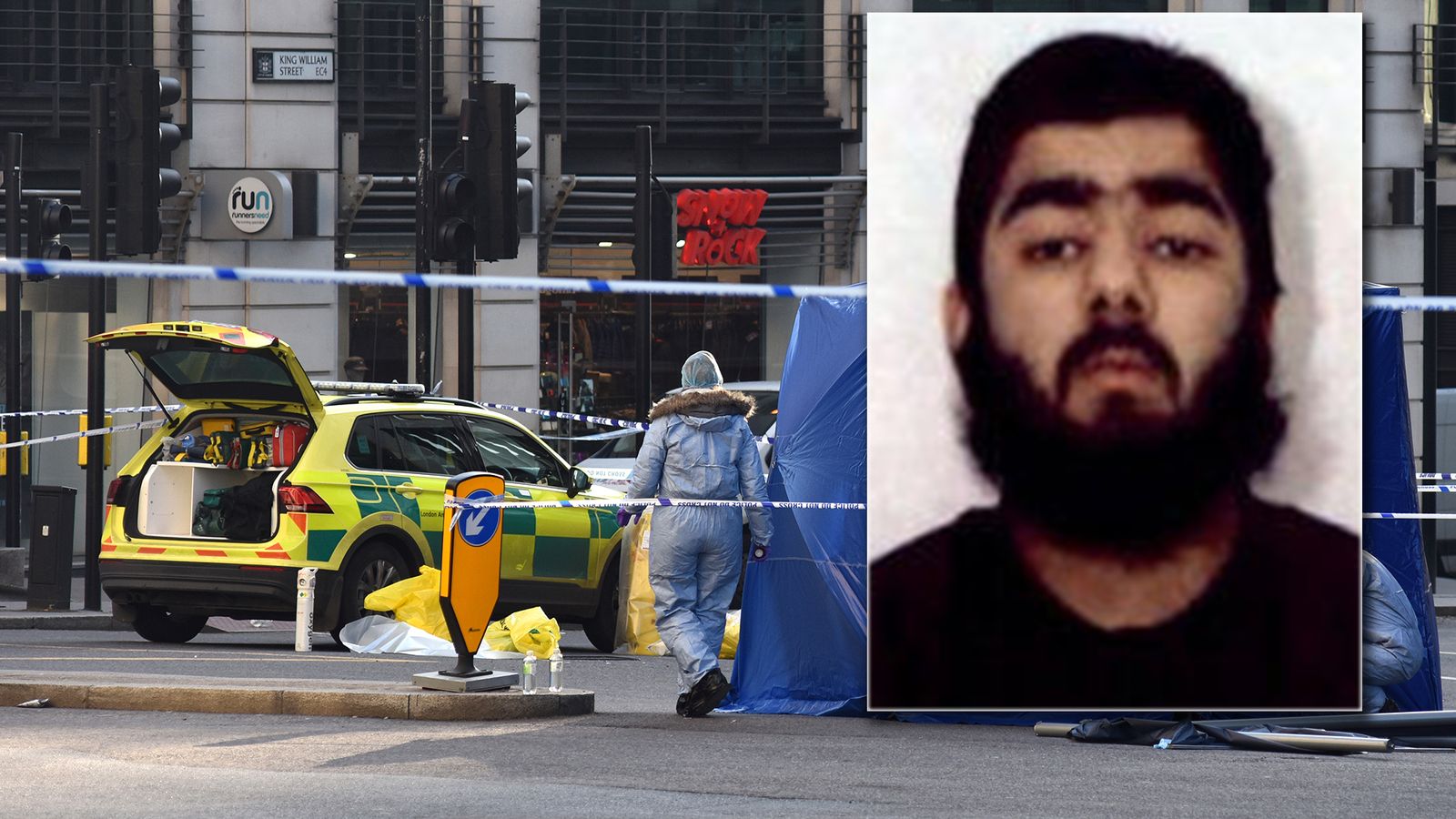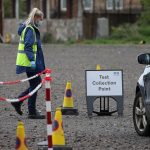MI5 is seeking to keep details of its investigation into the Fishmongers’ Hall terrorist secret after it emerged it held a meeting about the killer, 11 days before he stabbed two Cambridge University graduates to death.
Usman Khan stabbed and killed Saskia Jones, 23, and Jack Merritt, 25, who were working on a prison rehabilitation scheme during a conference at Fishmongers’ Hall in London in November 2019.
Khan, 28, from Stoke, had been released from prison for terrorism offences a year earlier and was still on licence, but was allowed to travel to London for the event run by a project called Learning Together.
He was wearing a fake suicide belt and smuggled two knives into the hall which he used to stab his victims before being shot by police on London Bridge.
Jonathan Hough QC, for the coroner, told a pre-inquest hearing that MI5 had “recognised the risk that he could become involved in attack planning”.
A joint operations team (JOT) meeting between West Midlands Police and MI5 on 18 November, noted that he had “become withdrawn and might re-engage in Islamist extremist activity”.
Despite that, “he was permitted by probation officers to visit an iconic site in central London without any accompanying officers for an event attended by some high-profile guests”, Mr Hough said.
“The inquests can and should assess what investigative measures they took, what the result of their investigations were and what steps they took with other agencies.”
However Home Secretary Priti Patel has applied for public interest immunity (PII) on matters related to the investigation, including the minutes of the JOT meeting.
The coroner, Mark Lucraft QC, will have to consider whether to grant the application, despite objections from the families of the victims who believe the material is key to understanding why their loved ones died.
The JOT meeting included references to the fact that there were concerns Khan was “isolating and reacting badly” to a visit from police officers on 10 November.
The visit and Khan’s “apparent isolation” were the subject of emails between the police officers and their colleagues in Staffordshire Special Branch.
The inquest was told that a multi-agency report from August 2015 had found that while in prison, Khan was “one of the main extremists on the wing responsible for radicalising others” and that he had contact with Brusthom Ziamani who carried out a later attack inside the jail – Whitemoor prison in Cambridgeshire.
MI5 considered that Khan might “act in compliant way to avoid scrutiny from the authorities” and that was raised in a prison intelligence report in mid-2018, just a few months before his release.
There was prison intelligence that he was continuing to radicalise others and would “return to his old ways” which was stored on the mercury intelligence system and featured in a multi-agency meeting on November 14, two weeks before the attack.
There were “serious concerns” about Khan’s risk prior to release, and given his previous conviction he had been assessed as being “at or near the highest level of risk” before his release, the inquest hearing was told.
MI5 and counter-terrorism police continued to have concerns about the risk he posed after his release and he was the subject of monitoring.
The security service became aware of a plan to attend the Learning Together event, run by the rehabilitation project, in October 2019.
It was noted that Khan was attending the gym less frequently and had stopped attending the mosque, showing a “significant withdrawal” since moving to his new flat.
It was also noted that he “might engage in further Islamist activity” and might try to travel to Pakistan, and there was some discussion of enhancing the level of “coverage” of his planned trip to London.
Henry Pitchers QC, for Saskia Jones’s family, said: “It seems such enhanced coverage wasn’t possible.”
He told the hearing that Khan was “not an unknown entity, he was a convicted terrorist” who had been released with 16 separate licence conditions and with the highest level of multi-agency public protection arrangements.
“As a result of these he was required to be subject to supervision from a number of state agencies.
“His attendance at the Learning Together event wasn’t unexpected. He required permission to attend. Having given permission for him to attend there seem to be no real arrangements for him to be accompanied.
“The lack of any precautionary measures during his attendance are at the heart of the inquest and those who had decision-making power and the power of veto.”
In the event he was able to assemble a fake suicide vest at home, to travel to London in a large coat and take items, including two large knives into the hall.
Ms Jones’ family are asking the inquiry to call the MI5 officers who made the decision not to stop Khan’s trip to London, but have been offered a senior “corporate witness”, known only as Witness A.
“These aren’t questions on the methods of gaining intelligence. The things we are most concerned with should not trespass on national security interests,” Mr Pitchers said.
“It is not in the public interest to conceal failings on the part of the security service, quite the contrary, shining a light should increase the chances of avoiding future mistakes.”
Jesse Nicholls, for the Merritt family said the MI5 evidence “appears to be of central relevance to the issue in this inquest.
“The open evidence gives rise to significant concerns that opportunities were missed to prevent the attack,” he said.
“It remains the family’s concern that the issues raised are ones which must be answered in open evidence.”
Mr Nicholls said it was “essential to the family in getting any sense of meaningful catharsis and essential to lesson learning for the family and wider public.”
Mr Nicholls said the family would rather the inquest was converted into a public inquiry, and the material considered in secret, than that it was not considered at all.
“We have no doubt that is what Jack would have wanted, to get it right,” he said.
However, Jason Beer QC for West Midlands Police Counter-Terrorism Unit, said there had been “no intelligence material of concern” since Khan’s release and it was agreed that the “further coverage” should be reviewed and the case “considered for closure”.
“The context is not of warning signs, it is of the careful and diligent process of checking and rechecking before the investigation was closed,” he told the hearing.
Neil Sheldon QC for MI5 said it was “accepted this is relevant evidence” and there was a “powerful public interest in not excluding relevant evidence from a hearing of this sort.
“The effect of upholding this application will be to create some gaps in the evidential picture. How extensive those gaps are, will be a matter of some debate,” he added.
But he added: “The sole basis on which the secretary of state has made that claim is national security.”
Mr Hough told the coroner he should take a “rigorous approach” and consider in detail the relevance of the documents, which MI5 is seeking to keep secret.
“We have taken a questioning and challenging approach to the claims and the Secretary of State has already abandoned and adjusted aspects of the claim,” he added.
His judgment will be delivered ahead of the inquest opening next month.






















